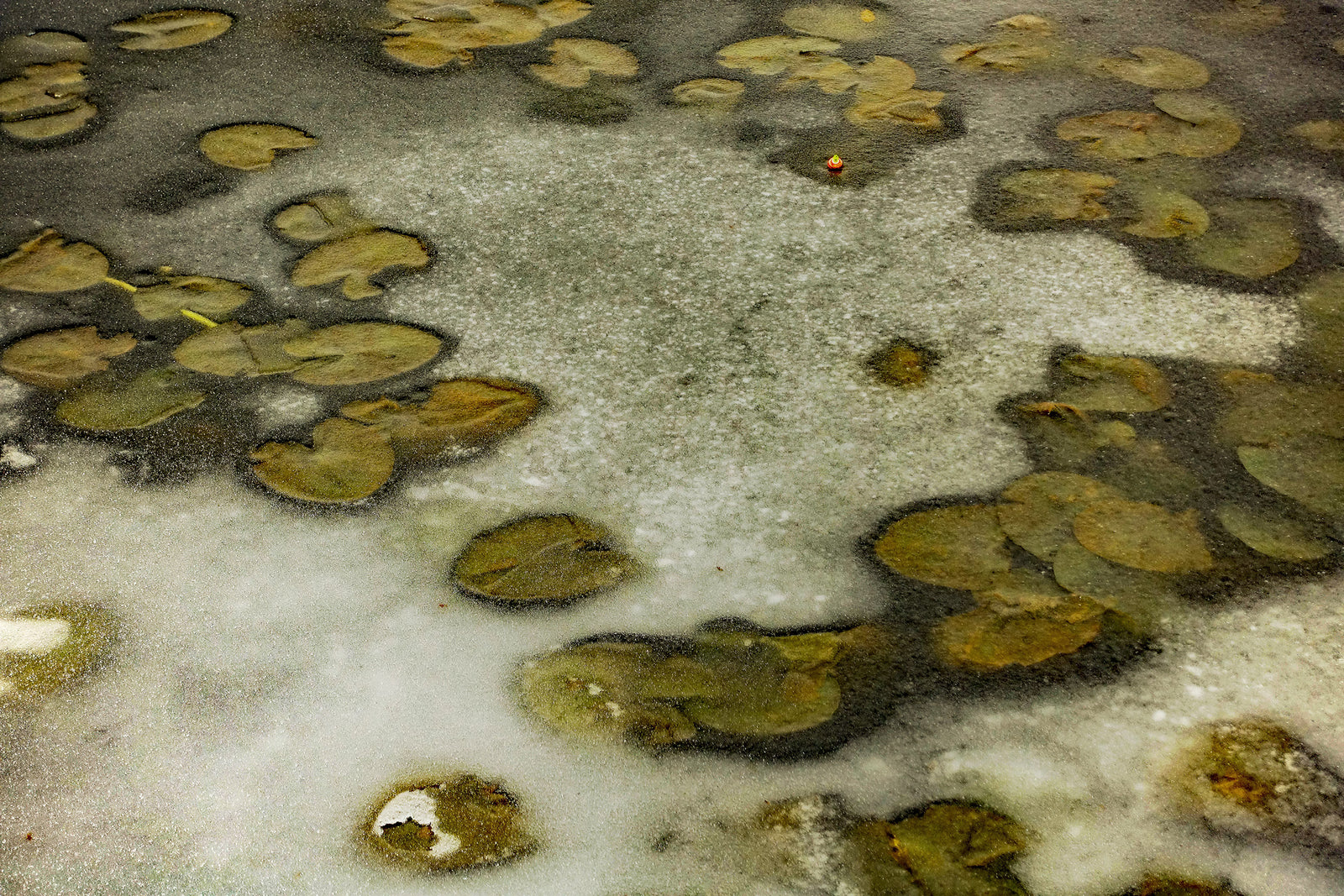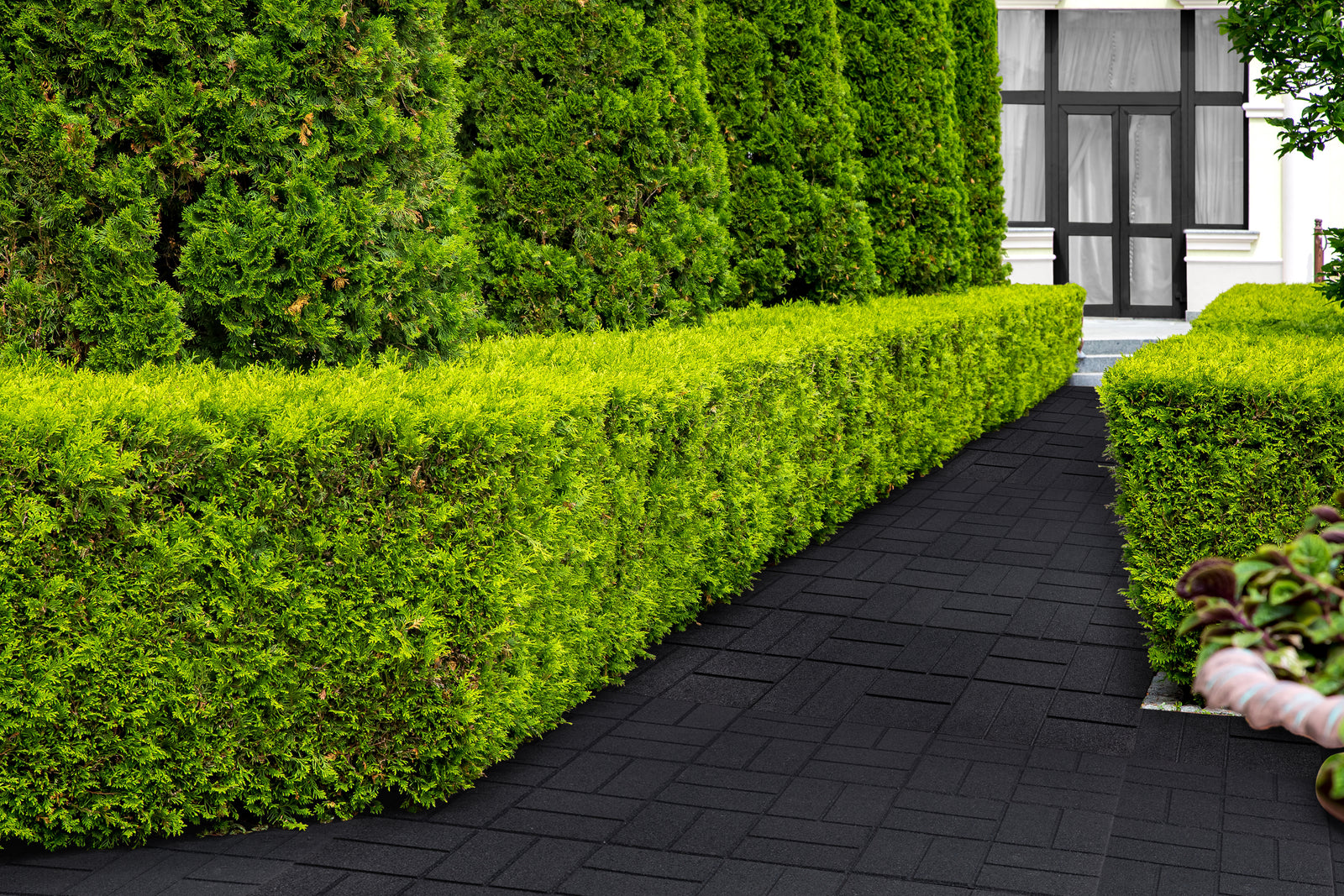March 14, 2024
Rubber Mulch vs. Wood Mulch: Here's How to Decide
Rubber Mulch vs Wood Mulch:
Which is Best for Your Next Project?
Whether you’re a homeowner or a commercial landscaper, chances are you may be looking for the best, most cost-effective mulching materials available. Two of the most popular options are rubber mulch and recycled wood, both offering different advantages. Here’s a quick review of using recycled rubber mulch and what this mulch offers versus natural wood mulch.
The Differences Between Rubber vs Wood Mulch
Rubber Mulch
Salvaged from discarded tires, rubber mulch is a recycled waste material composed of processed, ground-up car tires that is excellent for various landscaping applications. The process does not undergo any chemical change, and any metal wires and fibers are removed before being cleaned and ground into smaller rubber chips. Approximately 110 million tires are recycled annually by scrap rubber manufacturers, with up to 220 million kept out of landfills via recovery, secondary use, and recycling.
Wood Mulch
Recycled wood is a natural, organic option composed of recycled branches, pallets, bark, and other wood cut-offs and easily breaks down into the soil. If left untreated and sustainably sourced, its fibers can provide nutrients to the soil. The drawback, however, is that this type of mulch will require regular replacement and is susceptible to mold and insect infestation.
Tough-to-Beat Advantages of Rubber Mulch
Every project is unique and involves careful examination of its needs and requirements. You and/or your designated project manager or professional should consider all options with due diligence to ensure satisfactory results. Here’s what rubber mulch offers when compared to recycled wood:
Installation – The recycled rubber option is less messy than wood chips to install and won’t blow away when moving it in windy weather. However, rubber mulch will require a fabric barrier before installation, which helps to prevent weed growth. The upside is that once installed, it will not require annual replacement, mold treatment, or treatment for pests, which can be expected using wood mulch.
Lifespan/Durability – Recycled rubber doesn’t break down and degrade as easily as bark mulch so it will not need to be replaced regularly. It boasts longevity and durability and will last for years and years.
Maintenance – Using rubber mulch will not require special treatment or care to combat fungi or mold like its wood counterpart. Unlike wood options, it will not need insect treatment to prevent infestation.
Appearance – Rubber mulch provides a consistent and uniform look of color since the mulch is dyed in various colors to enhance gardens and other landscaped areas. It doesn’t get wind-blown as easily, so you won’t need to sweep it up as often.
Environment Protection – Diverting old tires away from landfills and finding new uses for discarded rubber provides landscapers with a high-quality option that helps benefit the environment by reducing emissions by up to 80 percent.
Garden Benefits
When applied to the soil’s surface, this protection layer helps retain moisture, reduce weeds, and enhance a garden’s appearance. Farmers find that recycled rubber works well to protect vegetation and provide windbreaks and barriers. It’s also beneficial when used in feeders, sheds, livestock mats, and other uses.
Drainage – Although exceptional in retaining moisture to prevent plants from drying out, rubber mulch also provides better drainage for soil when monitoring moisture levels and adjusting watering during winter.
Garden Pests – Wood mulch naturally attracts insects like termites and ants. Using rubber mulch will not attract these annoying creatures (except for Asian cockroaches).
Insulation – Maintain a thriving plant temperature and provide excellent insulation against extreme weather conditions by using rubber mulch to help provide resistance to hot and cold temperatures.
Weed Suppression – Since the installation of rubber mulch requires a fabric barrier, weeds are effectively suppressed to keep gardens free of pesky, unwanted plants.
Setting the Record Straight
There are pros and cons associated with any mulch material, and rubber mulch is no exception. Here is some additional information to address concerns you may have:
Cost – Although the rubber mulch cost may be more initially than natural recycled wood, crumb rubber proves to be cheaper in the long term with fewer replacements needed.
Safety – Using rubber mulch helps to cushion surfaces creating a safer environment in outdoor areas like playgrounds and other areas where you exercise, walk, run, and play.
Making the Right ChoiceWhen deciding on the best mulch for your landscaping needs, list the goals you are trying to achieve (e.g. less maintenance, enhanced look, weed suppression, etc.). Depending on your project, you may want to seek the help from a professional.
Sources:
Isri.org - Recycled Commodities
Do It Yourself - Rubber Mulch vs. Wood Mulch
Recycled Rubber Coalition - Research

Also in Rubber Mulch Blog

Effective Mold and Fungi Prevention: The Hidden Value of Rubber Mulch
October 31, 2024

Create Your Own Sensory Path with Rubber Pavers
October 28, 2024

Install Rubber Pavers for a Garden Pathway Makeover!
October 15, 2024
shop
Copyright © 2025 RubberMulch.com - All Rights Reserved.






